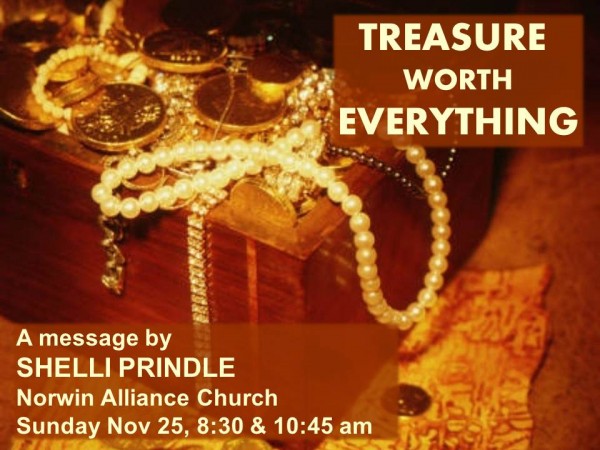
The Apostle Paul declares in Romans 13:1 (ESV), “Let every person be subject to the governing authorities.” He boldly added in verse seven, “Pay to all what is owed to them: taxes to whom taxes are owed, revenue to whom revenue is owed, respect to whom respect is owed, honor to whom honor is owed.” Clearly, God’s plan is one that requires order and includes human government because of man’s sinful nature. We will not all keep reign over our own behavior, therefore, a higher human authority established by God must do so. Some people allow God’s principles to rule generally over their actions because they have relationship with God. Others throw off the thought of God and His authority and must be directed in behavior by outside influence rather than the Spirit of God in their hearts. This need for outside parameters when internal criteria are rejected is expressed beautifully in Psalm 32:8-9 (ESV),
I [God] will instruct you and teach you in the way you should go; I will counsel you with my eye upon you. Be not like a horse or mule, without understanding, which must be curbed with bit and bridle, or it will not stay near you.
God’s desire is a man who willingly accepts God’s rule in His life. However, due to our fallen nature; God intervenes with human authority’s influence when we fail to restrain ourselves. Human government is a tool of God for a broken universe filled with broken people.
We must keep in mind that government consists of human beings and so is inherently fallible. God’s intention for authorities is clear and expressed in Romans 13:3-4 (ESV),
For rulers are not a terror to good conduct, but to bad. Would you have no fear of the one who is in authority? Then do what is good, and you will receive his approval, for he is God’s servant for your good. But if you do wrong, be afraid, for he does not bear the sword in vain. For he is the servant of God, an avenger who carries out God’s wrath on the wrongdoer.
Generally, then, God intends authorities to promote good and punish evil. We know beyond the shadow of any doubt that this does not always happen. Without reference to myriad contemporary examples, think of the Apostle Paul’s personal experience. Though he writes very succinctly of government’s meaning, he was killed under the reign of Emperor Nero. He and Peter were martyred by authorities because they were Christians! In both of their lives, authorities acted perversely – in direct contradiction to God’s expressed purpose for government. Paul was not a fool, and he understood what we apprehend – that government fails at many points – just as people do.
Nonetheless, people of God understand the importance of government within its human limitations. It is both a creation and tool of a sovereign, unfailing God. As a created institution, it must align itself with God’s truth in order to fulfill its right aim. Government is not a stand-alone entity, and it is not the solution to the human dilemma. Jesus Christ stands alone as the Way to existence as God intended. No man, woman, or child will ever experience the right-working, soon-coming, perfected and re-made universe without first entering into a relationship with the Creator through Jesus Christ. The answer to human failure and misery is spiritual in nature. People need reformed on the inside – in the spirit. A right spirit in a woman gives her the power to live as she should, and that new heart can only come from God.
Good behavior, good laws, good decisions, good government, good families, good economic plans, good relationships, and good education – all these are the result of an inside job, if you will. A person is delivered first from his enslavement to sin’s power, and then he can act rightly on a more consistent basis. With the Holy Spirit of God abiding in his clean heart, a man can now act as one should whose goal is a right-working, God-glorifying universe (the ultimate goal of God!). Note the incredible thoughts of Charles Colson (2007),
Today’s enthusiasm for political solutions to the moral problems of our culture arises from a distorted view of both politics and spirituality – too low a view of the power of a sovereign God and too high a view of the ability of man. The idea that human systems, reformed by Christian influence, pave the road to the Kingdom – or at least, to revival – has the same utopian ring that one finds in Marxist literature. It also ignores the consistent lesson of history that laws are most often reformed as a result of powerful spiritual movements. I know of no case where a spiritual movement was achieved by passing laws. (pp. 343-344)
Vital is our responsibilty to keep God’s order of things from being turned inside-out. Government is an important part of God’s plan; government is not the salvation of man. God is the Savior, and He is in the business of transforming people’s individual lives so they can help transform the world around them – including political systems.
Throughout history, governments and rulers have both succeeded and failed in their proper endeavor. We thank God for the privilege of observing His hand in the working of the government of the United States in many ways throughout the years. We think also of atrocities resulting from governmental rule – including our own political system. We often stand in speechless horror when we think of the sins committed and the misery wrought by political entities. Going directly to the Word of God, we have many examples. There is faithful Daniel who is tossed into a den of lions during the sixth century B.C. by decree of the Persian King Darius because Daniel refused to stop praying to His Savior. Daniel’s firm trust in God (his spiritual underpinning) resulted in his deliverance from the lions and a counter decree by King Darius charging citizens to reverence the God of Daniel.
There is the Apostle Paul, whose last years were spent often in prison under the authority of the Roman government. Nonetheless, faith in God grew as people witnessed the spiritual strength God gave to Paul despite the grave error and persecution of government. We see Paul gazing intently at his heavenly citizenship even as he walked this earth and sat in chains. The Word of God rang out with divine power despite – perhaps even because of – the evil committed by a government turned against its God-given intention. As he sat in a dungeon, chained to a Roman soldier, Paul wrote Philippians 1:12-14 (ESV),
I want you to know, brothers, that what has happened to me has really served to advance the gospel, so that it has become known throughout the whole imperial guard and to all the rest that my imprisonment is for Christ. And most of the brothers, having become confident in the Lord by my imprisonment, are much more bold to speak the word without fear.
The apostle saw God using this circumstance – this perversion of government – to God’s glory! Paul knew the only true answer for the human condition was found in salvation. If his imprisonment meant more souls could enter the greatest place to be a citizen – Heaven – then Paul counted persecution worth the cost. He no doubt prayed for His release and the turning in repentance of Roman authority, but he patiently waited on the greater plan of God while doing so. Paul lived rightly, honored human authority rightly, and prayed rightly; but he staked his life on a greater reality than this world’s system. Hear his amazing words written from prison in Philippians 3:20-21 (NIV),
But our citizenship is in heaven. And we eagerly await a Savior from there, the Lord Jesus Christ, who, by the power that enables him to bring everything under his control, will transform our lowly bodies so that they will be like his glorious body.
In line with Paul’s words are those of Russell Kirk as quoted by Colson (2007),
Christian faith may work wonders if it moves the minds and hearts of an increasing number of men and women. But if professed Christians forsake heaven as their destination and come to fancy that the state . . . may be converted into the terrestrial paradise – why they are less wise men than Marx.
Yes, Heaven is our destination. Its perfect justice and overwhelming beauty will be the result of God’s miracle in human hearts. Jesus died so we could live rightly. Note I Peter 2:24 (NIV), “[Jesus] himself bore our sins in his body on the tree, so that we might die to sins and live for righteousness.” In Heaven, we will finally live rightly without hindrance!
For now, our encumbrance is a sinful nature. That nature prohibits perfection in both individuals and institutions. But it does not prohibit the purpose of God! God is transcendent, existing outside the universe and independent of any institution. He is able to fulfill the truth of Ephesians 1:11 (ESV), “[God] works all things according to the counsel of his will.” All things. Not some. All. Everything. Without a wasted circumstance. Incredibly, He even works the result of every presidential election after the counsel of His own will!
We must pray continually. We must act righteously in a dark world. We must vote. We must promote the heart of God to a world in trouble. Ultimately, though, we must trust in God. We must put all our hope in an infinitely big God who saves people one at a time now and will save the entire world system one day for those who trust in Him. No matter who the president is, God is the ruler of every inch of reality. Put your hope in Him, and influence others to do the same. Tend to the spiritual matters of the heart, and political matters will fall into line – along with all other interests. For there is a King greater than all kings, and His name is Jesus. He was born in the days of evil King Herod (Matthew 2:1). God allowed even His own Son to endure governmental injustice. Though Herod sought to kill Jesus, Jesus lived on! The plan of God for our salvation endured. Herod died. God’s purpose continued. That is the way it will always be. Evil is vanquished; God’s goodness prevails. No matter what it ever appears in this imperfect world, the curse will one day be fully erased! (Revelation 22:3)
God’s man wins! His name is Jesus.
Reference:
Colson, C. (2007). God & Government: An Insider’s View on the Boundaries Between Faith & Politics. Grand Rapids, MI: Zondervan.








